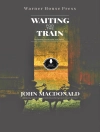“[This] fine history of Prohibition . . . could have a major impact on how we read American political history.”—James A. Morone, New York Times Book Review
Prohibition has long been portrayed as a “noble experiment” that failed, a newsreel story of glamorous gangsters, flappers, and speakeasies. Now at last Lisa Mc Girr dismantles this cherished myth to reveal a much more significant history. Prohibition was the seedbed for a pivotal expansion of the federal government, the genesis of our contemporary penal state. Her deeply researched, eye-opening account uncovers patterns of enforcement still familiar today: the war on alcohol was waged disproportionately in African American, immigrant, and poor white communities. Alongside Jim Crow and other discriminatory laws, Prohibition brought coercion into everyday life and even into private homes. Its targets coalesced into an electoral base of urban, working-class voters that propelled FDR to the White House.
This outstanding history also reveals a new genome for the activist American state, one that shows the DNA of the right as well as the left. It was Herbert Hoover who built the extensive penal apparatus used by the federal government to combat the crime spawned by Prohibition. The subsequent federal wars on crime, on drugs, and on terror all display the inheritances of the war on alcohol. Mc Girr shows the powerful American state to be a bipartisan creation, a legacy not only of the New Deal and the Great Society but also of Prohibition and its progeny.
The War on Alcohol is history at its best—original, authoritative, and illuminating of our past and its continuing presence today.
Sobre o autor
Lisa Mc Girr is Professor of History at Harvard University, where she specializes in the history of the twentieth-century United States. Her research and teaching interests bridge the fields of social and political history and focus on collective action, state building, reform movements, and politics. Her most recent book, The War on Alcohol: Prohibition and the Rise of the American State, won acclaim for excavating the significant but neglected state-building legacies of national Prohibition. Her award-winning first book, Suburban Warriors: The Origins of the New American Right, investigated the social and regional basis of grassroots conservative politics in the post–World War II United States. She teaches a wide variety of courses on the history of the United States in the twentieth century.










